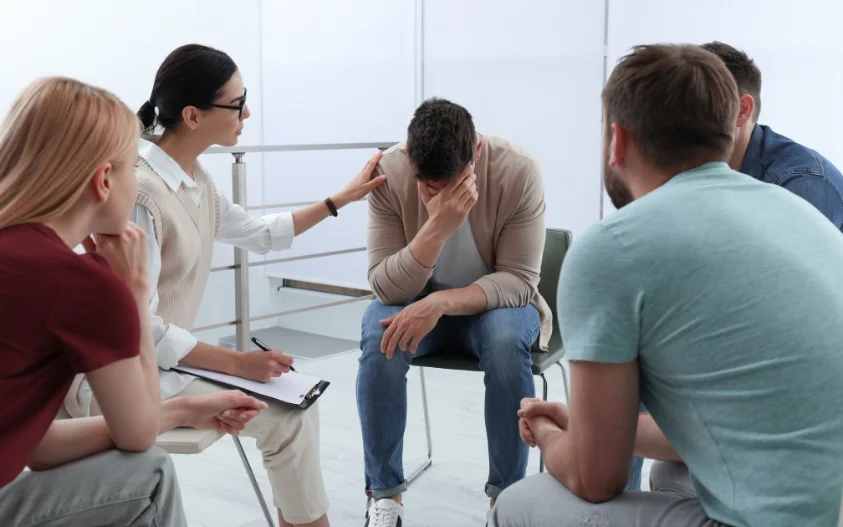24/7 Helpline:
(866) 899-221924/7 Helpline:
(866) 899-2219
Learn more about PTSD Rehab centers in Morgan County

Other Insurance Options
Beacon

Regence

Access to Recovery (ATR) Voucher

Aetna

Kaiser Permanente

Health Partners

Choice Care Network

Magellan Health

Molina Healthcare

Covered California

WellPoint

UMR

Private insurance

Oxford

Excellus

Coventry Health Care

CareSource

Providence

Self-pay options

Premera

Eastridge Health Systems
Eastridge Health Systems is a private rehab located in Berkeley Springs, West Virginia. Eastridge He...













